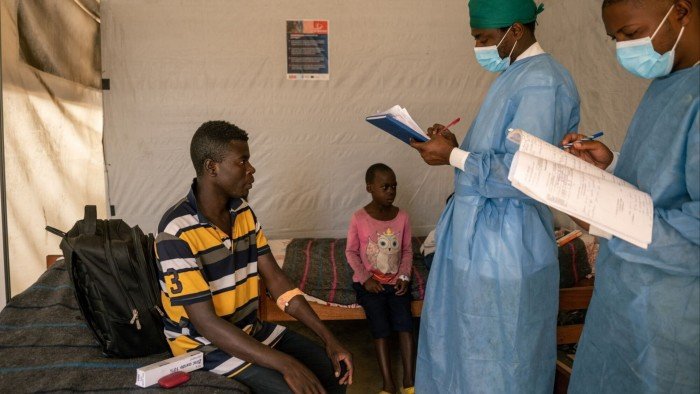
A Nigerian professor who alerted the world to the re-emergence of mpox in his home country has warned that experts are working “blind” on the viral disease’s latest surge in Africa because of a lack of adequate surveillance systems. Dimie Ogoina, chair of the World Health Organization’s emergency committee of independent experts on mpox, said case numbers in an outbreak that has officially infected more than 17,000 people were likely to be underestimates because of a shortage of rapid diagnostic tests and inadequate data collection. “We’re under-reporting cases because our surveillance system is not active enough,” Ogoina told the Financial Times. “Now that we have a new mpox [type] . . . it is time for us to rethink our surveillance system and make it more proactive,” he said. The WHO last week triggered a second public health emergency for mpox in barely two years, a sign of growing alarm over the spread of the viral disease’s more infectious clade 1 types in Africa. Ogoina, who alerted the world to Nigeria’s first mpox case for decades in 2017, said the situation was “unprecedented” in Democratic Republic of Congo, the epicentre of the current outbreak. He hopes the WHO declaration will encourage its partner bodies and countries to direct more resources to the health body’s “response plan”. WHO director-general Tedros Adhanom Ghebreyesus said on Friday the plan needed $135mn in funding over the next six months. Ogoina said there was too much reliance on “evidence from the global north. [But] genetics and responses in immune systems are different”, adding: “If we don’t know our gaps [in health coverage] and our contexts, natural history, transmission dynamics, we’re working blind.” A professor of medicine and infectious diseases at Nigeria’s Niger Delta University, Ogoina was honoured by Time magazine as one of the world’s 100 most influential people in 2023 for his research on mpox, formerly known as monkeypox.
 Weekly Bangla Mirror | Bangla Mirror, Bangladeshi news in UK, bangla mirror news
Weekly Bangla Mirror | Bangla Mirror, Bangladeshi news in UK, bangla mirror news







